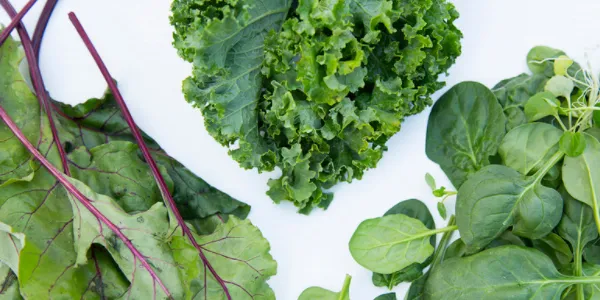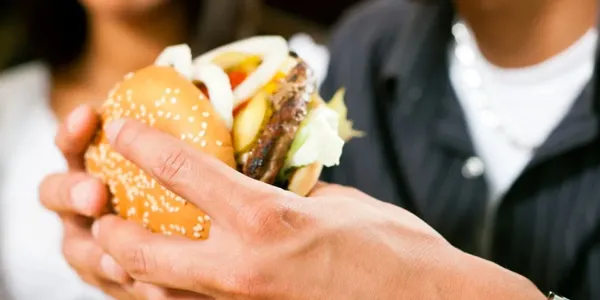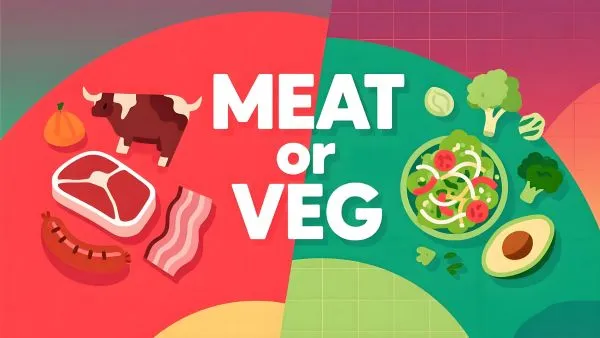
How Healthy Is Your Diet?🍝🍞
Eating healthily is one of the most effective ways to stay energized, mentally sharp, and full of energy. From leafy greens and colorful fruits to the occasional snack, our food choices reveal a lot about our lifestyles. Want to know how your own eating habits stack up?
1. What's your go-to breakfast?

2. How often do you eat vegetables?

3. What's your snack of choice?

4. How much water do you drink daily?

5. How often do you eat fast food?

6. What does dinner usually look like?

The saying, "You are what you eat," may sound cliché, but it's packed with truth. Food provides the energy, vitamins, and minerals our bodies need to function properly. A balanced diet not only helps us avoid disease but also makes us feel stronger, happier, and more energetic. Whether it's a big bowl of fresh salad, a hearty bowl of soup, or a piece of luscious fruit, what we put on our plates directly impacts how we feel each day.
Healthy Eating Basics
A healthy diet typically includes a variety of macronutrients (carbohydrates, protein, and fat) and micronutrients (vitamins and minerals). Whole grains provide long-lasting energy, lean protein helps repair and build muscle, and healthy fats (like olive oil or avocado) keep the brain and heart functioning properly. Meanwhile, fruits and vegetables are rich in antioxidants and dietary fiber, which aid digestion and boost immunity. A balanced diet doesn't have to be complicated. Think of your plate as a rainbow:Colorful foods often mean a variety of nutrients. A combination of green, orange, red, and purple isn't just visually appealing; it provides the body with all the energy it needs.
Indulgence Becomes a Habit
Let's be honest, no one can maintain a perfect diet all the time. Pizza nights, chocolate cravings, and late-night snacks are all part of life. Moderation is perfectly fine. Problems arise when processed, sugary, or fried foods become the center of attention, rather than an occasional treat. Consuming these foods excessively over a long period of time can lead to low energy, mood swings, and even health problems.
A healthy diet maintains balance: focusing primarily on nutrient-rich foods with occasional comfort foods.
Healthy Habits
It's not just what you eat that's important; it's how you eat it. Healthy habits can make a big difference:
Control your portion size: Even healthy foods can lead to overeating if you eat too much.
Stay hydrated: Hydration keeps your body running smoothly.
Mindful eating: Slowing down and savoring every bite can help prevent overeating. Consistency: Skipping meals or eating at irregular times can disrupt your energy levels.
By establishing these habits, you can create a daily routine that meets your body's needs without constant effort.
Adapting Your Diet to Your Lifestyle
Not everyone needs the same diet. The nutritional needs of a teenager, an athlete, or a busy office worker may vary greatly. The most important thing is to find a balanced diet that works for you. For example:
A busy office worker may need quick and easy, nutritious meals.
An active person may need extra protein and carbohydrates to fuel their exercise.
Older adults may benefit from calcium-rich foods to maintain bone health.
Rather than comparing different diets, focus on listening to your body; it usually knows what it needs.
The Joy of Fresh Food
One of the joys of healthy eating is discovering new flavors. Fresh fruits, herbs, and spices can make meals delicious without relying on heavy sauces or sugar. Substituting sparkling water with lemon for soda or roasted chickpeas for potato chips are small steps that can have big results.
It's time to test your plate! Answer the following questions to find out how healthy your eating habits are. This fun, non-judgmental quiz lets you discover your eating habits and get a fun summary of your eating style, whether you're a salad lover or a snack lover.


